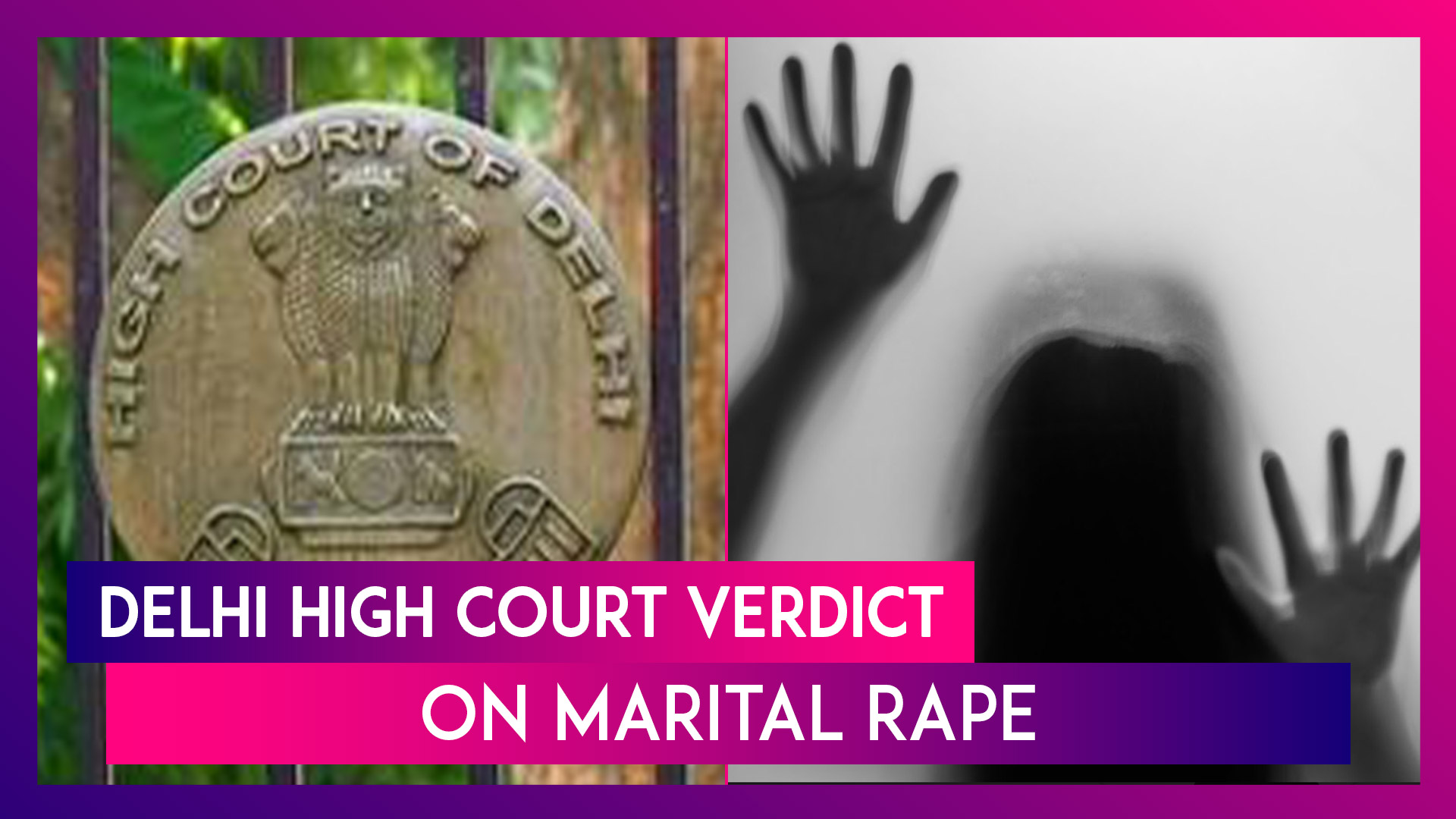On Wednesday (May 11), a two-judge bench of the Delhi High Court issued a divided decision in a series of petitions challenging the Indian Penal Code’s provision for marital rape (IPC).

The exemption under Section 375 of the IPC (which deals with rape) is unconstitutional, according to Justice Rajiv Shakdher, whereas the clause is legal according to Justice C Hari Shankar. The verdict’s specifics were awaited.
The court was considering four petitions that questioned the validity of the Section 375 exemption. The court heard many intervenors, including a men’s rights organisation and amicus curiae senior attorneys Rajshekhar Rao and Rebecca John, in addition to the petitioners, who included the All India Democratic Women’s Association (AIDWA).
The Centre first upheld the rape exemption in the current Supreme Court lawsuit challenging the legality of Section 124A IPC (sedition), but then altered its mind and notified the court that it was evaluating the statute and that “more thoughts are necessary on the subject.”
A 2019 committee set up by the Ministry of Home Affairs to examine criminal legislation in the country was brought to the court’s attention by Solicitor General Tushar Mehta.
The Delhi administration claimed that the marital rape exception should be kept. The government’s reasons ranged from defending males against potential legal abuse by spouses to defending the institution of marriage.
The matter is considered by a bigger Bench if the verdict is divided. This is why, although though two-judge Benches or Division Benches are not uncommon, judges normally sit in Benches of odd numbers (three, five, seven, etc.) for major cases.
A three-judge High Court bench can hear a split verdict, or an appeal can be filed with the Supreme Court. Because the case contains significant legal issues, the Delhi High Court has already granted a certificate of appeal to the Supreme Court.
Despite the court’s divided decision, its involvement shifts the needle in favour of repealing the marital rape exception in the legislation. The decision of Justice Shakdher advances the debate on the issue and lays the basis for a bigger constitutional intervention before the Supreme Court.
The Supreme Court refused to suspend the Karnataka High Court ruling that put a man on trial for the first time for marital rape. The Supreme Court’s rejection to suspend the ruling shows that the higher court is prepared to look at the colonial-era rule.
Several post-colonial common law jurisdictions recognise marital rape immunity. Marital rape has been made illegal in Australia (1981), Canada (1983), and South Africa (1993).
In 1991, the House of Lords in the United Kingdom overturned the exemption. The Lords held that the time had “arrived when the law should proclaim that a rapist remains a rapist subject to the criminal law, irrespective of his connection with his victim” in their historic judgement in R v R. They further claimed that the decision did not create a new crime, but rather removed a common law fiction with ecclesiastical roots.
The House of Lords ruling was claimed to be a retrospective change in criminal law, which would be a violation of the European Convention on Human Rights. The European Court of Justice looked into the case and affirmed the Lords’ conclusion as a “predictable progression” of the law.
In 2003, laws in the United Kingdom made marital rape illegal.

